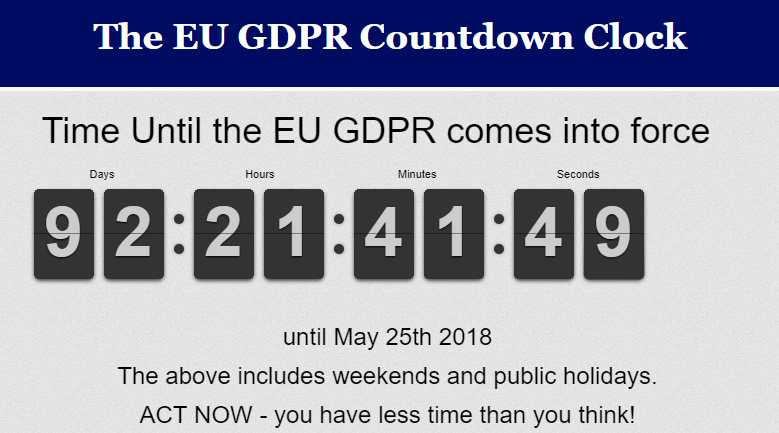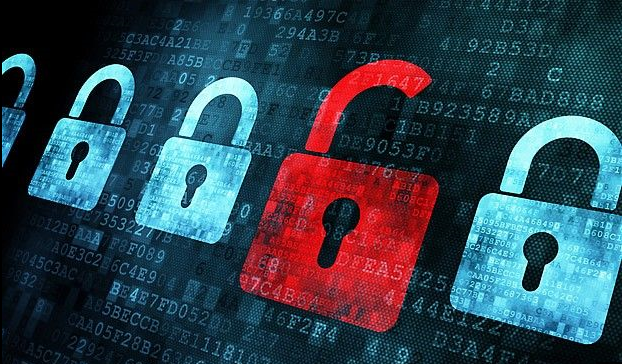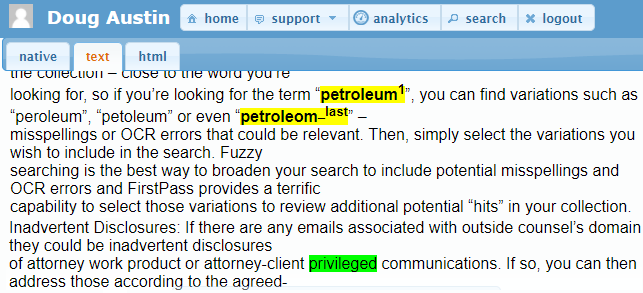Once Again, Florida is the Place to Be for eDiscovery Education in March: eDiscovery Best Practices
I alluded to it last week, now I’ll discuss it in more depth. Next month, the University of Florida E-Discovery Conference will be held on Thursday, March 29 – believe it or not, this is the sixth annual conference. And, for the first time, I’m going to be there! If you’re going to be in Gainesville then too, great! If not, you can still attend from the comfort of your desk at work or at home.
But first, this week’s eDiscovery Tech Tip of the Week is about Proximity Searching. When performing keyword searching, the challenge to performing those searches effectively is to balance recall (retrieving responsive documents with hits) and precision (not retrieving too many non-responsive documents with hits). One way to achieve that balance is through proximity searching, which is simply searching for two or more words that appear close to each other in the document. Proximity searching is more precise then an AND search (where two terms can appear in the document together but be completely unrelated) with more recall than a phrase search (where the terms must be exactly together in that order). It’s an especially useful technique when searching for names, among other things. So, proximity searching can be a valuable search strategy for striking the proper balance in your search results.
To see an example of how Proximity Searching is conducted using our CloudNine platform, click here (requires BrightTalk account, which is free).
The focus of this year’s UF Law E-Discovery conference is effectively managing the everyday case and they will have interesting sessions throughout the day, covering topics ranging from eDiscovery security and data protection to early assessment of the case and the data to keywords, TAR and AI (do I need to spell out those acronyms anymore?). Want to know about eDiscovery of the JFK files? They’ve got it. Want to get judges’ perspectives on sanctions and other eDiscovery issues? They’ve got that too.
The panel of speakers is a regular who’s who in eDiscovery, including Craig Ball, George Socha, Kelly Twigger, David Horrigan, Martin Audet, Mary Mack, Rose Jones, Mike Quartararo and also US Magistrate Judges John Facciola, James Francis, Judges William Matthewman, Mac McCoy, Amanda Arnold Sansone and Gary Jones, and retired Florida Circuit Court Judge Ralph Artigliere.
I’m on a panel discussion at 9am ET in a session titled Getting Critical Information From The Tough Locations – Cloud, IOT, Social Media, And Smartphones! with Craig, Kelly, with Judge Sansone. We’ve already had two planning calls about the session and it should be terrific!
As always, the conference will be conducted in Gainesville, FL on the University of Florida Levin College of Law campus (as well as being livestreamed), with CLE-accredited sessions all day from 8am to 5:30pm ET. The conference has been approved for 7.5 Continuing Legal Education (CLE) general credits, 2.0 ethics credits and 3.0 technology credits by the Florida Bar for attorneys attending the conference. The Florida Bar has also approved 7.5 civil trial certification credits. So, this is a great opportunity to get those needed CLE credits!
In addition, E-Discovery CareerFest will precede the 6th Annual E-Discovery Conference for the second straight year on Wednesday, March 28 from 3pm to 5:30pm ET. And, for the first time, the Law School E-Discovery Core Curriculum Consortium (composed of law professors teaching electronic discovery courses at their respective law schools) will host its first in person workshop focusing on curriculum development on Friday, March 30th from 9am to 12pm ET.
Click here to register for the conference – it’s only $199 for the entire day in person and only $99 for livestream attendance. And, if you’re a currently enrolled student (in an ABA accredited law school, accredited E-Discovery graduate program or accredited paralegal program), it’s free(!), either in person or livestreamed. It’s also free if you’re university or college faculty, professional staff, judicial officials, clerks and employees of government bodies and agencies, it’s free(!) for you too. In any case, it’s a tremendous bargain.
About the only issue I have with the conference is the way they spell “E-Discovery”. I’ll have to take that up with Bill Hamilton when I see him… :o)
So, what do you think? Are you going to attend the conference next month? If not, why not? Please share any comments you might have or if you’d like to know more about a particular topic.

Sponsor: This blog is sponsored by CloudNine, which is a data and legal discovery technology company with proven expertise in simplifying and automating the discovery of data for audits, investigations, and litigation. Used by legal and business customers worldwide including more than 50 of the top 250 Am Law firms and many of the world’s leading corporations, CloudNine’s eDiscovery automation software and services help customers gain insight and intelligence on electronic data.
Disclaimer: The views represented herein are exclusively the views of the author, and do not necessarily represent the views held by CloudNine. eDiscovery Daily is made available by CloudNine solely for educational purposes to provide general information about general eDiscovery principles and not to provide specific legal advice applicable to any particular circumstance. eDiscovery Daily should not be used as a substitute for competent legal advice from a lawyer you have retained and who has agreed to represent you.






